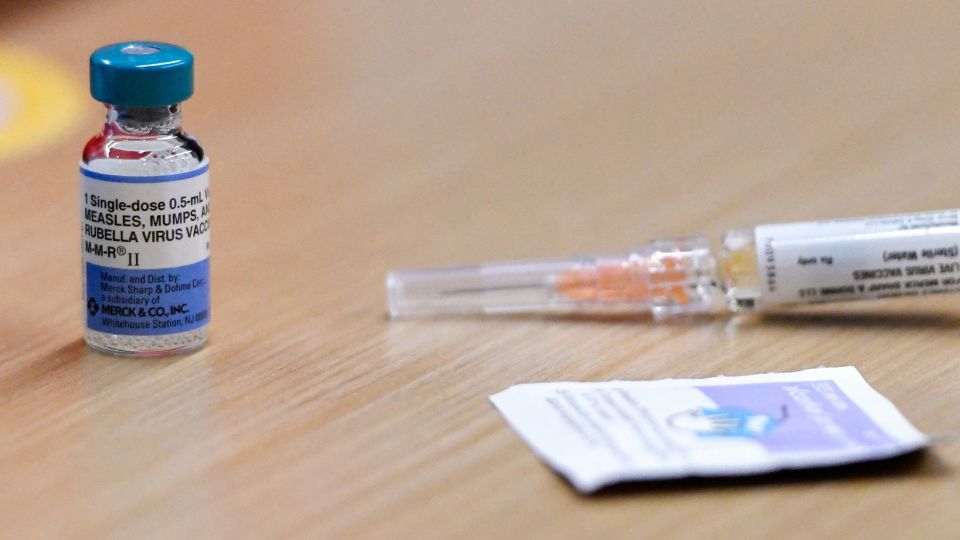
Rising Vaccine Exemptions and Declining Coverage in U.S. Kindergartners
A growing number of kindergartners across the United States are going without required vaccinations, raising concerns about public health and disease prevention. According to new data released by the Centers for Disease Control and Prevention (CDC), a record share of students had exemptions for at least one state-mandated vaccine during the 2024-25 school year.
The data shows that approximately 3.6% of incoming kindergartners did not have full vaccination coverage, translating to around 138,000 children. This figure represents a significant increase from previous years, with exemptions rising by more than a full percentage point over the past four years. The majority of these exemptions were based on non-medical reasons, such as personal or philosophical beliefs.
Measles Vaccination Rates Drop
One of the most concerning trends is the decline in measles-mumps-rubella (MMR) vaccination coverage. For the 2024-25 school year, MMR coverage dropped to 92.5%, marking the fifth consecutive year that the rate has fallen below the federal target of 95%. This drop coincides with a rise in measles cases, which have reached their highest levels in the U.S. since the disease was declared eliminated 25 years ago.
About 286,000 kindergartners did not complete the MMR vaccine series, and the vast majority of recent measles cases have involved unvaccinated children. The CDC emphasizes that vaccination remains the most effective way to prevent serious diseases like measles and whooping cough, which can lead to hospitalization and long-term health issues.
However, the agency also acknowledged that the decision to vaccinate is a personal choice, advising parents to consult healthcare providers for guidance.
State Policies and Vaccine Exemption Trends
Forty-five states allow religious exemptions for school immunizations, while 15 states permit exemptions based on personal or philosophical beliefs. These policies have contributed to the growing number of exemptions, particularly in states where both types of exemptions are available.
The American Academy of Pediatrics (AAP) has called for the elimination of non-medical exemptions, citing strong scientific evidence that vaccines are safe and effective. Dr. Sean O’Leary, chair of the AAP Committee on Infectious Diseases, stated that there are no valid reasons to opt out of vaccination.
Despite this, the CDC data shows that exemptions increased in 36 states during the 2024-25 school year. In 17 states, more than 5% of kindergartners had exemptions, making it difficult to reach the 95% MMR coverage goal needed to prevent outbreaks.
Impact of Policy Changes
Some states have made it easier to obtain exemptions, which could further lower vaccination rates. For example, a law passed in Texas this year allows families to print exemption forms online without submitting a written request. This change has raised concerns among public health officials, who worry it may contribute to even lower MMR coverage in the state.
In Mississippi, a federal court ruling allowed religious exemptions to be added to the state’s vaccination policy, leading to an immediate increase in exemptions and a drop in MMR coverage.
Experts warn that small changes in vaccination rates can have significant consequences, especially when unvaccinated individuals cluster in certain communities. Dr. Josh Williams, a pediatrician and researcher, explained that even a slight decline in coverage can increase the risk of outbreaks, particularly for highly contagious diseases like measles.
The Need for Public Health Communication
Public health officials stress the importance of clear and consistent messaging about the benefits of vaccination. Dr. Philip Huang, director of the Dallas County health department, noted that there has been a lack of strong support for vaccines from top leadership, which could undermine efforts to improve coverage.
Vaccines are often victims of their own success, as people may not fully appreciate their protective effects until an outbreak occurs. This year’s measles outbreak, which has resulted in three deaths and numerous hospitalizations, highlights the urgent need to address declining vaccination rates.
A Call for Community Action
Dr. Williams encourages parents to consider the broader impact of their decisions on community health. He notes that the majority of parents do vaccinate their children, and those who are hesitant can be influenced through education and trust-building.
Public health advocates urge communities to work together to promote vaccine confidence and ensure that all children are protected against preventable diseases. As schools prepare for the next academic year, the focus remains on improving vaccination rates and safeguarding public health.